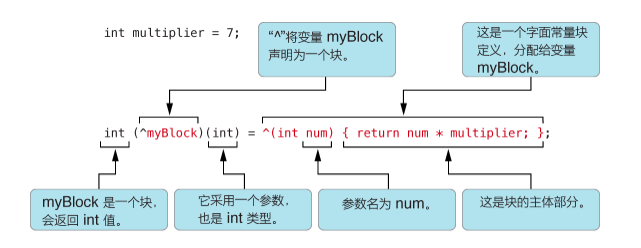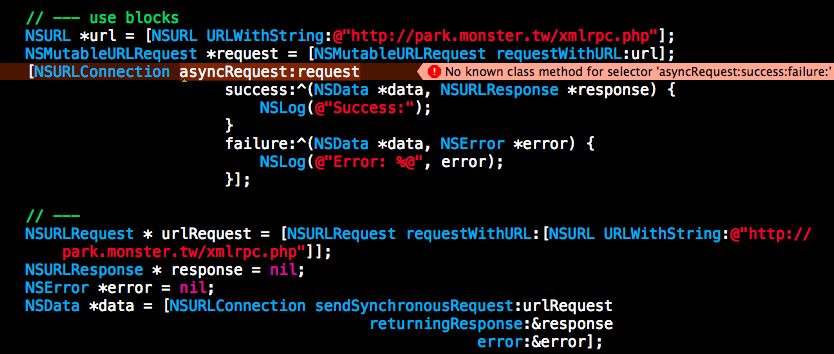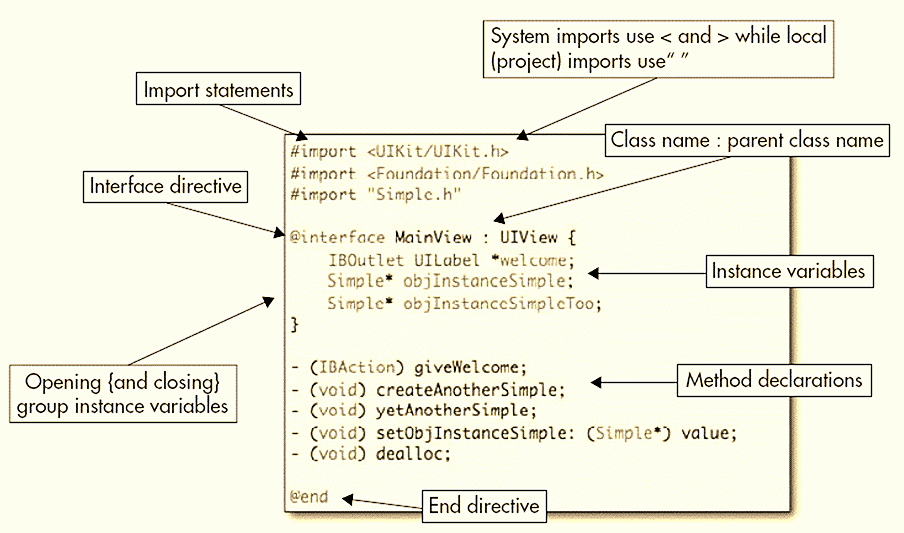Objective-C Cheat Sheet and Quick Reference
URL : http://www.raywenderlich.com/4872/objective-c-cheat-sheet-and-quick-reference
Objective-C Cheat Sheet and Quick Reference
URL : http://www.raywenderlich.com/4872/objective-c-cheat-sheet-and-quick-reference

在新的iOS API中block被大量用來取代傳統的delegate和callback,而新的API會大量使用block主要是基於以下兩個原因:
可以直接在程式碼中撰寫等會要接著執行的程式,直接將程式碼變成函數的參數傳入函數中,這是新API最常使用block的地方。 可以存取區域變數,在傳統的callback實作時,若想要存取區域變數得將變數封裝成結構才能使用,而block則是可以很方便地直接存取區域變數。





—
Objective C Blocks: Summary, Syntax & Best Practices
http://amattn.com/p/objective_c_blocks_summary_syntax_best_practices.html
定義
- (void) sayHello: (NSString*) name;
implementation :
- (void) sayHello: (NSString*) name {
NSMutableString *message = [[NSMutableString alloc] initWithString:@"Hello there "];
[message appendString:name];
NSLog(message);
[message release];
}
//
simple.m 宣告 sayHello method:
#import "Simple.h"
@implementation Simple
- (void) sayHello: (NSString *) name {
NSMutableString *message = [[NSMutableString alloc] initWithString:@"Hello there "];
[message appendString:name];
NSLog(message);
[message release];
}
@end
//
simple.h
#import
@interface Simple : NSObject {
}
-(void) sayHello: (NSString *) name;
@end
//
main 呼叫 sayHello method:
#import
#import "Simple.h"
int main(int argc, char *argv[]) {
NSAutoreleasePool * pool = [[NSAutoreleasePool alloc] init];
Simple * mySimple = [[Simple alloc] init];
[mySimple sayHello:@"James"];
[mySimple release];
int retVal = UIApplicationMain(argc, argv, nil, nil);
[pool release];
return retVal;
}
//
